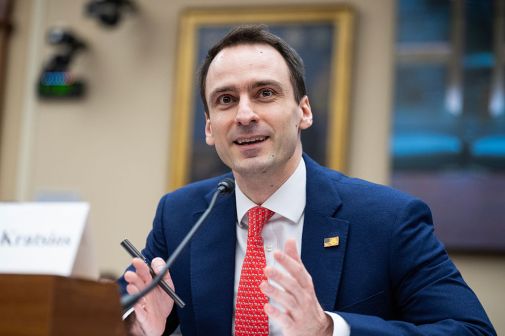DOD’s Work wants to launch space operation center
As countries like China encroach on the U.S.’s assets in space, a top official from the Department of Defense discussed plans to establish a space operations center within the next six months.
“We are intent on setting up a joint interagency and combined space operations center in which the [intelligence community] and DOD sit,” said Robert Work, deputy secretary of Defense.
He added, “We are going to develop the tactics, techniques, procedures, rules of the road that would allow us to … protect [architecture] while it is under attack. That is our highest priority and the thing that will give us the highest payoff.”
He made the remarks at GeoInt2015, a major intelligence convention hosted by the nonprofit United States Geospatial Intelligence Foundation, where he took questions about initiatives at the Defense Department. He stressed the importance of “geoint,” or geospatial intelligence, in the operations of the department.
“We will be contested across the technological domain and across all operational domains, but especially space,” he said, “because our adversities know just how powerful our space capabilities are and how much we rely upon them.”
The White House’s fiscal year 2016 budget request called for a $5 billion investment to improve its capabilities in space. And he said that the importance of the request makes it crucial for the country to avoid sequestration.
“I’m more confident now than I was three months ago that we will not have sequestration,” Work said. Though, he said he’s not certain what a final deal would look like. “For the next several months, everyone at the Department of Defense will be holding their breath.”
Later in the program, Robert Cardillo, director of the National Geospatial-Intelligence Agency, debuted his agency’s strategy for 2015. The top goal, he said, was to develop workers at the agency. He also talked about the importance of working with partners, advancing excellence in the profession and anticipating customer needs.
During his talk, he also highlighted his agency’s efforts to open up data in the response to the Ebola outbreak in West Africa and the recent earthquake in Nepal.
“We need to accelerate our current progress, and make more content as accessible as possible, and find better ways to leverage the contributions of others,” Cardillo said.






